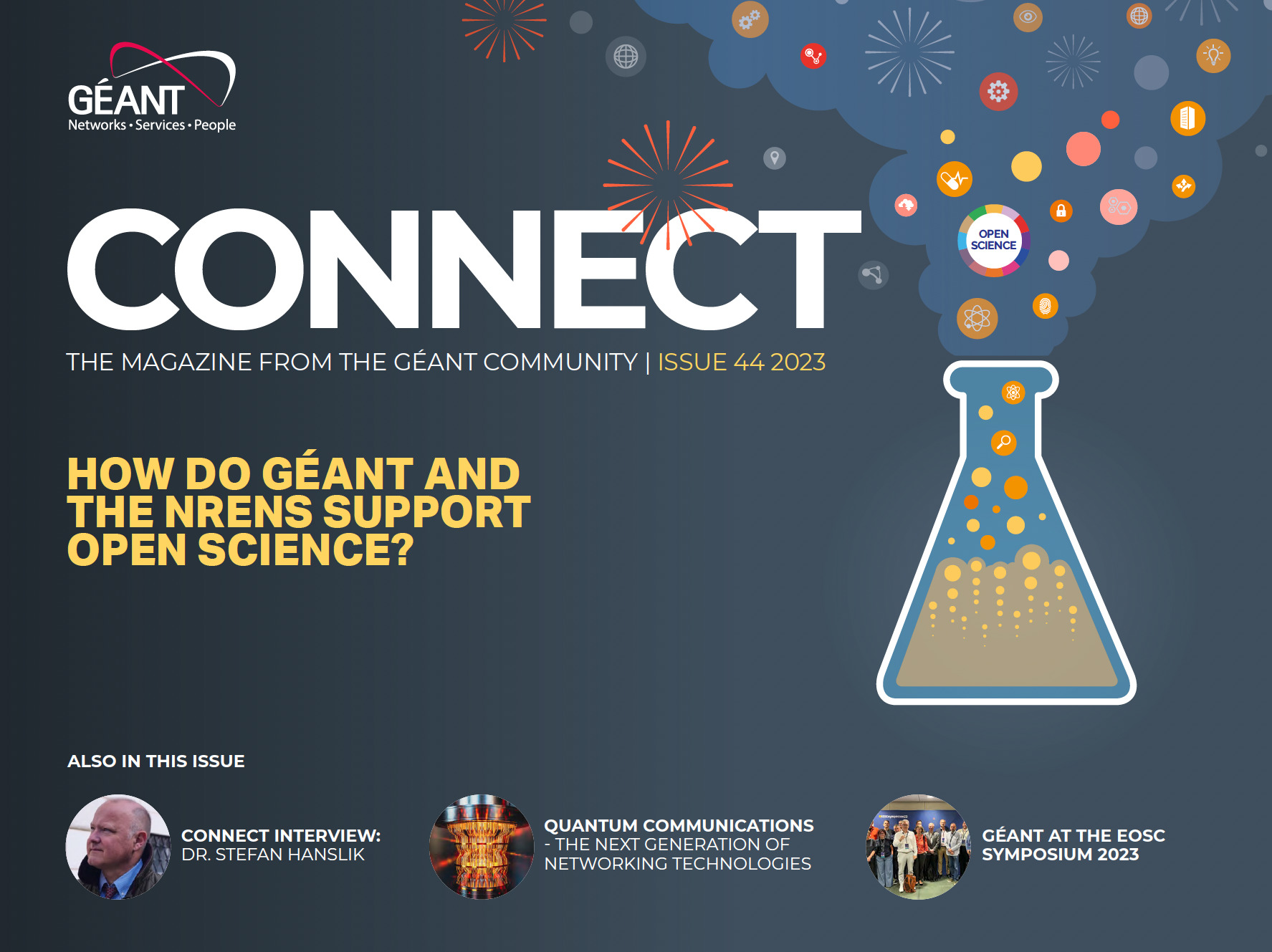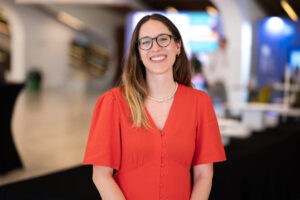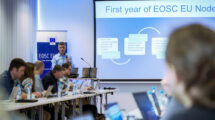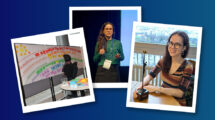
How did your interest in research data management develop?
It all started in 2019, during my PhD in Developmental Biology at the University of Nottingham. As part of my doctoral studies, funded by the BBSRC, I travelled to the Netherlands to undertake an internship working with the Data Champions at Delft University of Technology (TU Delft).
I spent three months interviewing researchers and publishing written articles about their motivations to become advocates for good research data management. Before this experience, I did not truly understand what ‘research data management’ was in the context of my own research. Planning, collecting, processing, analysing, and preserving data was just a ‘means to an end’ for me to write my thesis and associated journal publications. I certainly hadn’t considered the value of my data or how to make it openly available for reuse by anyone else.
Learning from the Data Champions and Data Stewards at TU Delft made me realise that good research data management is a prerequisite for research integrity and reproducible research, and its importance is increasingly emphasised by funding bodies, governments, and research institutions around the world.
I also realised that education and support for good research data management is not widely available to researchers in many institutions. This ignited my passion to help researchers achieve better research data management and, upon completing my PhD, I embarked on a new career path as a Community Manager with the aim to build communities and collaborations that focus on the creation and reuse of data that is Findable, Accessible, Interoperable and Reusable (FAIR).
What does it mean to build a community?
Community management is the catalyst for open and collaborative team research. It’s about providing space and opportunity for multidisciplinary experts to exchange knowledge and work transparently to overcome research data challenges. I believe that community managers are the glue that binds the community, bringing people together to drive progress forward.
My first position at 4TU.ResearchData, an international data repository for science, engineering, and design, involved building an online community from scratch during the COVID-19 pandemic. Building connections and trust in a remote setting proved challenging, however with consistency, resilience, and determination, a small network of data stewards flourished to a vibrant online community of more than 170 researchers and data support professionals.
In my current position at the Research Data Alliance (RDA), I support the growth and development of a 13,000+ member strong community of international data experts. It is truly amazing to witness such a broad and diverse community of volunteers come together to build the social and technical bridges that enable open sharing and re-use of data across technologies, disciplines, and countries to address the grand challenges of society.
In both positions I have been fortunate to have the freedom to be creative and craft my role, which boosts my energy and enthusiasm for my work. From developing high-level strategic management plans to organising community events, my community building tasks and activities are highly varied; I work on many diverse projects with community members, and I love that no two days are the same!
How is the ‘FAIR’ research data management landscape evolving to continue to support the increasing and ever-changing needs of researchers?
‘Research Data Management’, ‘Open Data’ and the ‘FAIR Data Principles’ are distinct but related concepts gaining significant traction among the global research data community. Taken together, these concepts emphasise the importance of data stewardship and data sharing, ensuring that data is made available in ways that promote its access and reuse.
In recent years, there has been rapid development and advancement of technical and social solutions to support researchers in making their data FAIR.
The research data landscape has evolved to comprise a myriad of FAIR-enabling digital tools, services, and infrastructures, including persistent identifiers, metadata schemas, standards and ontologies, repositories, registries, and open research commons.
With the ever-expanding array of technical solutions, it becomes increasingly important to provide social solutions for researchers that help to raise awareness, educate, and build capacity among researchers to achieve good research data management, and effective implementation of the FAIR Data Principles.
Aside from the deployment of actionable research data management policies and mandatory data management plans, it is positive to see a growing number of institutions invest in support staff, such as data stewards, data managers, research software engineers, and community managers, who can provide researchers with essential research data management-based skills and competencies to achieve FAIR data.
A final point to note is the hot topic of research assessment reformation which strives to recognise data, software, and other digital objects as ‘first class research outputs’. I look forward to what the future holds for research evaluation since it is a key player in driving the culture change towards the adoption of FAIR research data management practice.
You recently attended the Open Science session at TNC23 where you talked about the value of RDA for the community. Can you tell us more about it?
The RDA is a grassroots, community-driven initiative with members from 150 countries that is built on guiding principles of openness, inclusivity, consensus and transparency. Membership is open to all interested individuals who subscribe to the organisation’s guiding principles. All meetings are open to members and all outputs are publicly disseminated and available to all.
The RDA is unique in providing a neutral social platform where data experts meet from all corners of the globe to exchange knowledge and best practices on various research data management related topics. And, the diversity of topics is quite astounding as more than 100 community groups – Working Groups, Interest Groups and Communities of Practice – are dedicated to advancing topics related to FAIR data, software and hardware; metadata and technical infrastructure; research data policy, support and education; sustainable development and responsible research; and, disciplinary data. Research Data Alliance pathways created by the RDA’s Technical Advisory Board help community members navigate all RDA activities.
Joining the RDA has value for a diversity of stakeholders, including researchers, data supporters, industry professionals, infrastructure providers, librarians, funders, publishers, research performing organisations and regions.
Members gain access to a growing network of international experts with broad experiences, perspectives, and practices relevant to data-driven discovery and innovation. They receive regular updates about the work of the RDA, can participate in groups and biannual Plenary meetings to discuss and debate research data management related topics of interest, and can contribute to the practical development of concrete solutions and deliverables. All members have a voice within the community to provide advice, express their needs, and troubleshoot solutions to data-related challenges.
What are some of the most exciting recent developments in your work with RDA?
This year is the RDA’s 10th birthday! To commemorate this important milestone with our member community the RDA Secretariat has organised a year of celebratory events and activities. Each month of 2023, from February to November, is dedicated to a specific theme related to research data management of relevance to the RDA community and, so far, we have scheduled around 50 diverse activities, including webinars, workshops, podcasts, and hybrid Plenary meetings!
I am excited to attend the next RDA 21st Plenary meeting, ‘A Festival of Data’ as part of International Data Week 2023 which will take place in Salzburg, Austria in October.
As part of the anniversary celebrations, I have had the pleasure of organising a series of community cross-fertilisation workshops in collaboration with my colleague, Kathryn Barker. Together, we run monthly virtual workshops that bring together RDA working groups, interest groups and Communities of Practice with members of the wider research data community to discuss the future of important research data management-related topics.
I’m also proud to be facilitating new working groups supported by Oracle for Research, as part of the RDA’s strategic plan to engage the private sector. After considerable planning and preparation, the first working group, ‘Mapping the landscape of digital research tools’, officially kicked off in April to identify, categorise, and map different types of research tools to the research data lifecycle.
Watch this space! Another facilitated working group will be launched soon and hopefully we will see more of these innovative industry collaborations in the future to support the research community with enablement of FAIR data practices and principles.
My work with the wonderful RDA members and experience of the vibrant community at TNC has highlighted many synergies and areas of collaboration that I hope we can explore together in the near future.
Read more about RDA on https://www.rd-alliance.org/. Connie joined an episode of FAIR Data Podcast – listen to it on Spotify.
Related article(s): Clare, Connie, Pratt, Katie, Sidik, Saima, & Woodley, Lou. (2022). CSCCE Community Manager Case Study: Connie Clare. Zenodo. https://doi.org/10.5281/zenodo.6228272

Read or download the full magazine here







